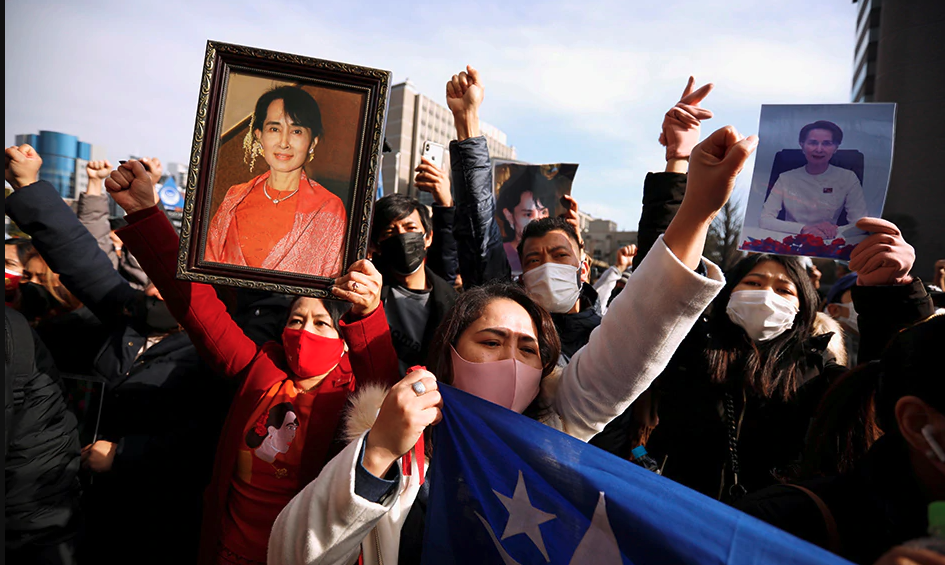The Army’s coup in Myanmar seriously undermines the gradual return to democracy
In one swift operation, Myanmar’s military establishment has wiped out a decade of the country’s democratisation process. By arresting President Win Myint, State Counsellor Aung San Suu Kyi and the rest of the ruling National League for Democracy (NLD) leadership, and declaring military rule under a state of emergency for at least a year, General Min Aung Hlaing has made it clear that it is the military that is in charge, and he is not particularly concerned about the opposition to or condemnation of the move. The immediate reason for the coup was that the newly elected National Assembly was due to meet in Naypyidaw on Monday, despite the Tatmadaw’s (Army’s) claims that the November general elections had several irregularities, and its contestation of the NLD’s landslide victory. Ms. Suu Kyi had refused to bow to Gen. Hlaing’s demand that the results, which also saw the military-backed Union Solidarity and Development Party with a reduced strength in Parliament, be set aside. Clearly, the Army, which still nominates a fourth of the parliamentary seats and retains the important Defence, Borders and Interior portfolios, felt it was better to dismiss the NLD government before it increased its clout. Gen. Hlaing is due to retire this year, and it is possible that the move was meant to extend his longevity in power. Backed by a silent Beijing, the junta leadership may also have gambled that it was better to take drastic action against the democratic leaders before the new U.S. administration finds its feet. The return to Army rule was also helped to some extent by Ms. Suu Kyi, who came to office in 2015, but has lost opportunities to put her country more firmly on the road to democracy. She has accepted a dual power system in the state. Daw Suu, as she is known, has also failed to bring democracy to her party, and been criticised for her autocratic style. Her refusal to rein in the Generals when the Tatmadaw unleashed a pogrom on the Rohingya between 2016-17, had lost the Nobel Peace laureate much international support.
Regardless of the reasons for the coup, the step is a setback for the international community’s efforts to engage with Myanmar, after a strict sanctions regime. For India, which had cultivated a careful balance, between nudging along the democratic process by supporting Ms. Suu Kyi, and working with the military to ensure its strategic interests to the North East and deny China a monopoly on Myanmar’s infrastructure and resources, the developments are unwelcome. The government will need to craft its response taking into consideration the new geopolitical realities of the U.S. and China as well as its own standing as a South Asian power, and as a member of the UN Security Council. New Delhi’s immediate reaction, to merely express “deep concern” and counsel following the rule of law and democratic processes, is unlikely to suffice as a long-term strategy.




